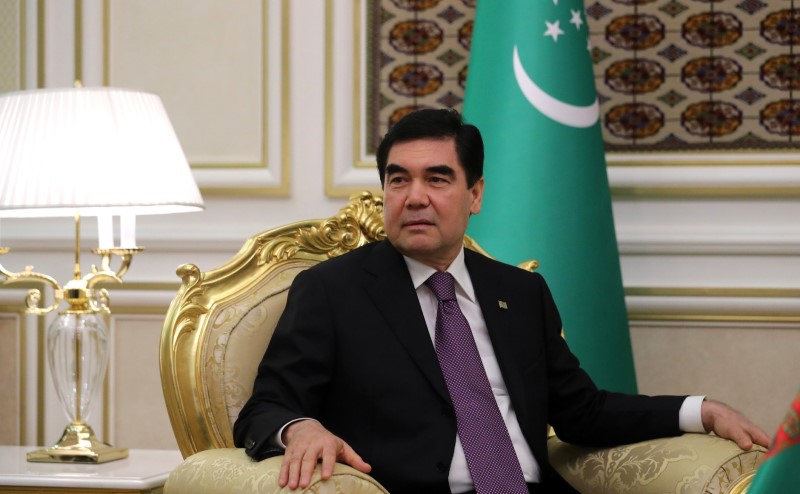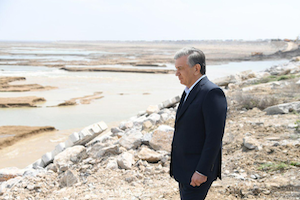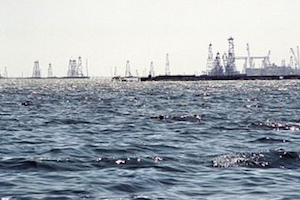Amid Rising Crises, Turkmenistan Strengthens its Military and International Outreach
By John C. K. Daly
November 19, 2020, the CACI Analyst
The year 2020 is proving to be inordinately arduous for Turkmenistan, inflicted with a multitude of problems including the Covid-19 pandemic, plummeting natural gas prices and increasing concerns about rising violence in neighboring Afghanistan. Complicating the Turkmen government’s response to these crises is the country’s relative isolation imposed by its internationally recognized policy of strict neutrality. Given the transnational nature of these issues, the Turkmen government is fitfully readjusting its domestic and foreign policies to cope, as the threats are both internal and regional. The Turkmen government is increasingly aware that Turkmenistan cannot unilaterally resolve these threats and is attempting to devise international outreach programs for assistance, a significant deviation from its previous isolationist nationalist policies.

Re-opening Abkhazia's Border with Russia: Economic Opportunity or Epidemiological Risk?
By Tomas Baranec
September 28, 2020, the CACI Analyst
On August 1, 2020, Sukhumi reopened its border with Russia. The border had been closed since early April to halt the spread of the new coronavirus SARS-CoV-2. The decision was driven by Abkhazia’s economic concerns, given the region’s heavy dependence on the flow of Russian tourists. However, the development of the epidemiological situation in Abkhazia in the first three weeks after the border reopened indicated that the combination of a massive influx of tourists from the world’s third most infected country and a lack of medical infrastructure in the region could have a negative impact overriding any economic gains from tourism.

Border Problems in Central Asia: Dividing Incidents, Uniting Solution
By Farkhod Tolipov
July 16, 2020, the CACI Analyst
In May-June 2020, Central Asia experienced several border incidents between Uzbekistan and Kazakhstan; Uzbekistan and Kyrgyzstan; Kyrgyzstan and Tajikistan. These incidents revealed once again, on the one hand, the local population’s transboundary lifestyle and on the other, the artificial character of the borders that separate independent states from each other. Similar incidents have recurred in the region with a certain frequency since gaining independence; however, none of them escalated into larger and dangerous conflicts since resolutions came quickly and were based on unique integrative arrangements.

Azerbaijan's Economy Takes a Double Blow
By Natalia Konarzewska
June 16, 2020, the CACI Analyst
The collapse of oil prices and oil demand along with the economic shutdown imposed to fight the coronavirus pandemic are putting a strain on Azerbaijan’s economy. The upheaval on the global oil market has exposed fragilities in Azerbaijan’s banking system as four of its banks were recently put under temporary administration of the central bank and others had their capital requirements relaxed. The government has introduced economic and social packages to mitigate the consequences of the crisis; however, growth forecasts in 2020 remain pessimistic.

Chechnya's Kadyrov Clashes with Russian PM Mishustin
By Emil A. Souleimanov and Huseyn Aliyev
June 10, 2020, the CACI Analyst
At an April 6 ministerial meeting, Russia’s newly appointed Prime Minister Mikhail Mishustin made a remark to the governors of Russia’s provinces, who in the preceding weeks introduced a ban on leaving and entering their respective regions in order to curb covid-19 infections, advising them “not to confuse regional powers with federal authorities.” As Chechnya’s strongman Ramzan Kadyrov had introduced a ban on the republic’s physical contacts with the outside world in the end of March, Kadyrov took this general statement personally. Soon, Kadyrov expressed concern that the prime minister was being “misled.” The conflict marks what some believe is the beginning of a troublesome relationship between Chechnya’s leader and Russia’s newly appointed prime minister.



